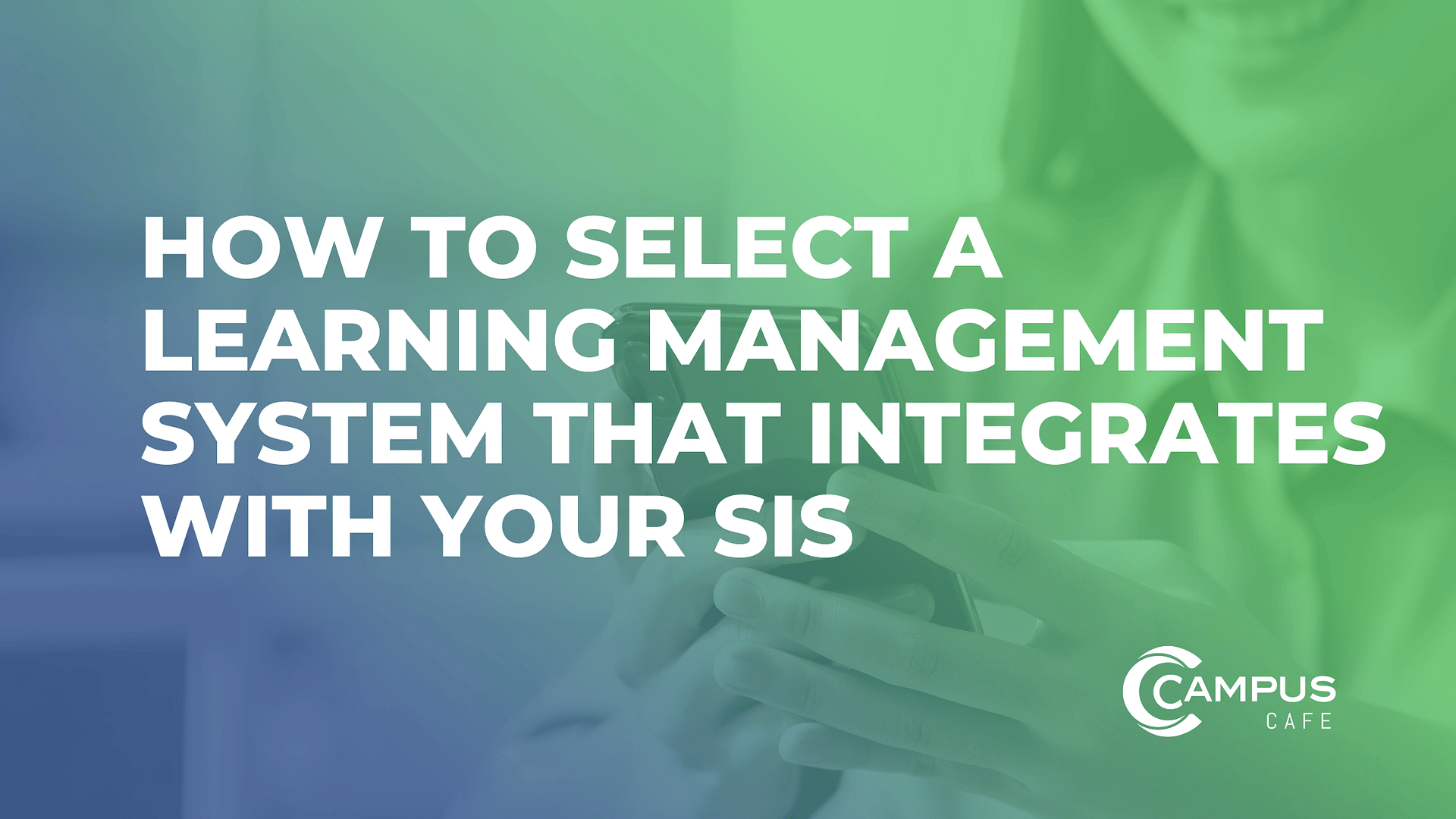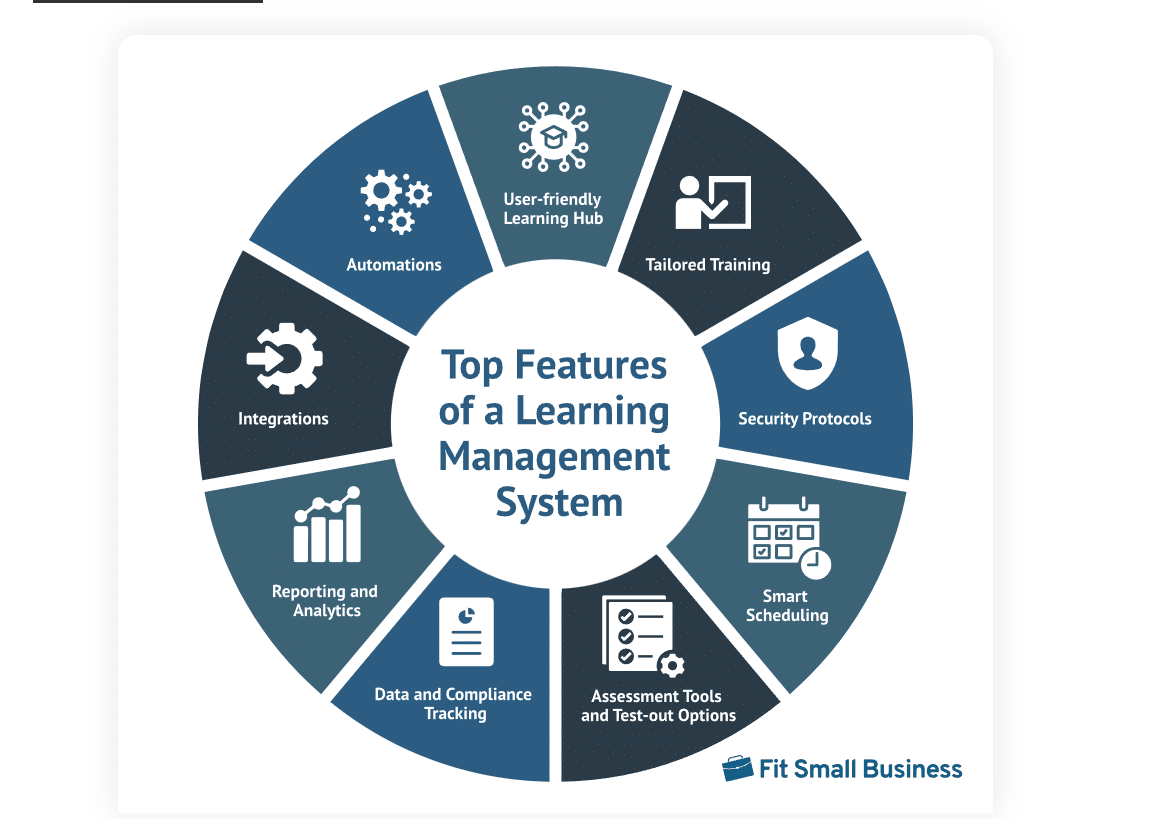Choosing the very best Discovering Administration System for Your Organization
Choosing the ideal Discovering Administration System (LMS) for your company is a diverse decision that calls for mindful consideration of numerous aspects. From specifying exact learning goals that reverberate with your strategic vision to assessing user experience, each factor plays a critical function in the general performance of the system. In addition, comprehending assimilation capacities and guaranteeing scalability for future demands can not be neglected. As companies aim for efficiency and development, the selection of an LMS becomes increasingly significant. What are the vital considerations that can influence your decision-making process?
Define Your Understanding Objectives
Specifying clear understanding goals is crucial for the effective implementation of a Knowing Administration System (LMS) These purposes act as a roadmap, guiding the growth of content, evaluations, and overall educational methods within the LMS. By developing certain, measurable, achievable, appropriate, and time-bound (WISE) goals, organizations can make certain that the knowing experiences are straightened with their calculated purposes and learner demands.
Efficient learning objectives need to encapsulate what students are anticipated to know or have the ability to do upon completion of a program or training program. This quality not only aids in web content creation yet additionally helps with the evaluation of learner progress and the general effectiveness of the LMS. Singapore LMS. Well-defined goals make it possible for stakeholders to evaluate whether the selected LMS capabilities and features align with their instructional objectives.
Assess Customer Experience
Once finding out purposes have been developed, evaluating user experience ends up being an essential following action in choosing an ideal Understanding Monitoring System (LMS) Customer experience encompasses the general fulfillment and convenience with which learners engage with the system. A properly designed LMS ought to assist in intuitive navigation, making certain that customers can locate courses, products, and support easily.
To evaluate user experience, consider carrying out use testing with a representative example of end-users. Trick elements to assess include the LMS's interface design, access attributes, mobile compatibility, and the clearness of guidelines given.
In addition, evaluate the availability of assistance resources, such as tutorials and assistance centers, which can enhance the customer experience. The responsiveness of client assistance is also critical; prompt help can dramatically alleviate disappointments that individuals may run into. Eventually, picking an LMS that focuses on individual experience not just enriches the finding out procedure yet likewise cultivates higher involvement and fulfillment among students.
.png)
Evaluate Integration Abilities
Acknowledging the significance of seamless functionality, evaluating integration abilities is essential when selecting an Understanding Management System (LMS) An efficient LMS ought to facilitate interoperability with existing systems, such as Human Source Monitoring Systems (HRMS), Client Relationship Management (CRM) platforms, and various other instructional tools. This combination boosts information flow, lowers management worries, and makes certain a natural discovering setting.
When examining an LMS, take into consideration the types of integrations offered. Look for Application Programming Interfaces (APIs), Single Sign-On (SSO) capabilities, and pre-built adapters that improve assimilation procedures. In addition, verify the LMS's ability to integrate with third-party tools, such as content collections or analysis platforms, which can considerably enrich the knowing experience.

Think About Scalability and Adaptability
As companies progress, the capability of a Discovering Management System (LMS) to range and adapt comes to be significantly important. A scalable LMS can suit development in individual numbers, course offerings, and web content without compromising efficiency or individual experience. As services increase, whether through increased personnel, new places, or varied training needs, the LMS needs to effortlessly expand along with these adjustments.
Adaptability is equally vital; a reliable LMS should sustain numerous learning techniques, such as online, blended, and mobile knowing. This check my blog versatility allows companies to respond rapidly to emerging fads in training and growth, making certain that they can provide appealing and appropriate discovering experiences - Singapore LMS. In addition, the system needs to provide customizable attributes, enabling organizations to tailor the LMS to their certain requirements and branding
In addition, a flexible LMS should integrate conveniently with existing platforms and tools, assisting in a cohesive knowing ecosystem. Thus, when picking an LMS, it is important to assess not only its current abilities however also its prospective to adapt and grow abreast with the company's strategic objectives and progressing finding out requirements. This insight can considerably improve the long-term feasibility of the chosen LMS.
Testimonial Prices and Budgeting
When reviewing an Understanding Management System (LMS), examining costs and budgeting is important to guarantee that the investment straightens with the organization's calculated purposes and economic capabilities. Organizations must begin by determining the total expense of ownership, that includes licensing costs, application prices, upkeep, and any extra costs such as training and technical support.
It is vital to contrast numerous LMS options, as rates versions can differ substantially amongst vendors. Some systems may offer a subscription-based model, while others might bill an one-time charge. Organizations needs to likewise take into consideration the scalability of the LMS; as they grow, the cost framework might transform, impacting long-term budgeting.

Final Thought
Selecting a proper Discovering Management System (LMS) is vital for achieving business understanding goals. An extensive analysis of user experience, assimilation capacities, scalability, and financial considerations makes certain that the selected LMS lines up with strategic goals and student demands. By systematically resolving these factors, companies can boost learning end reference results, help with smooth operations, and assistance future development. Ultimately, the best LMS serves as a crucial device in cultivating an effective discovering environment and driving organizational success.
Choosing the optimal Knowing Administration System (LMS) for your company is a diverse decision that calls for careful factor to consider of different components.Defining clear knowing goals is vital for the effective application of a Learning Monitoring System (LMS)Once discovering objectives have been developed, examining individual experience comes to be a vital next action in selecting an appropriate Understanding Management System (LMS)As companies advance, the capacity of a Discovering Administration System (LMS) to range and adapt becomes progressively important.Selecting a suitable Learning Administration System (LMS) is vital for accomplishing business learning objectives.